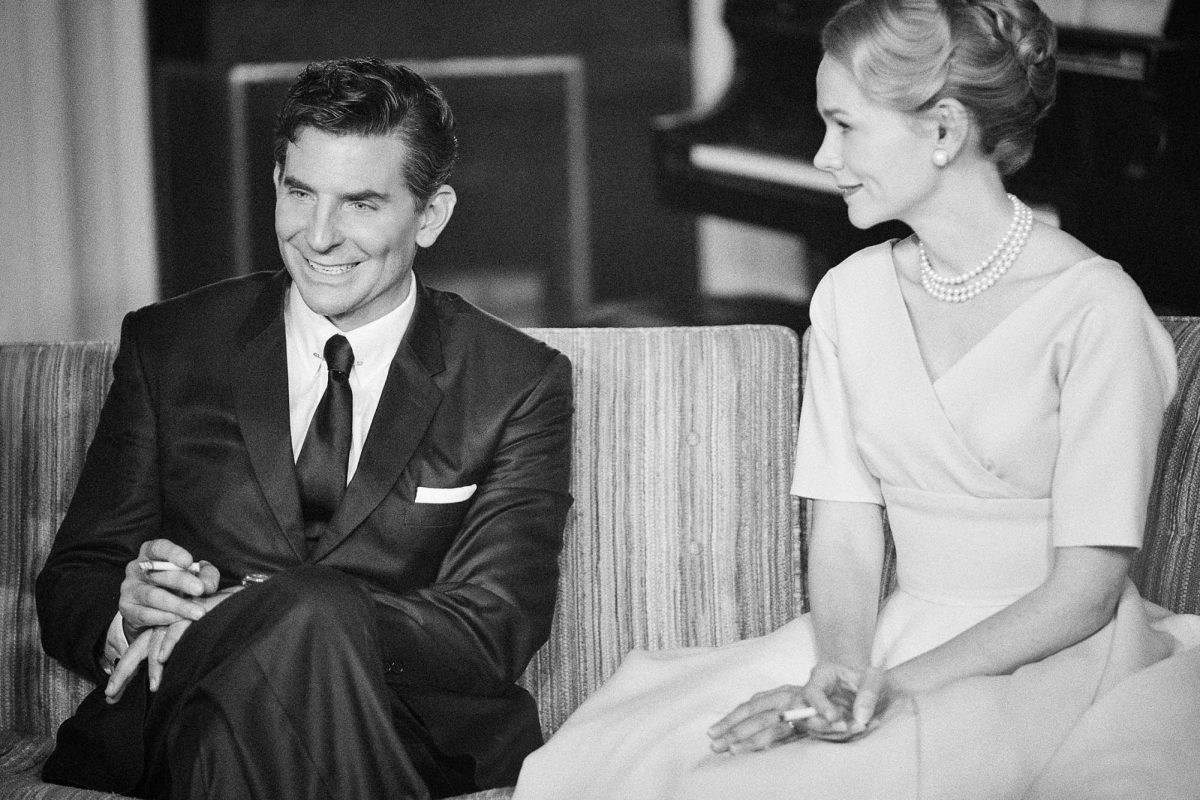Throughout the film, Cooper and Mulligan do everything to immerse themselves in the characters, from prosthetic noses to key screenplay choices. The two main leads have a convincing chemistry that perfectly conveys the love at first sight between Bernstein and Montealegre. The details of the lead actors provide a more thorough understanding of the characters and help the audience gain a more realistic insight into their relationship. In many scenes, the characters talk simultaneously and speak over each other to imitate realistic conversation between two people. The strategy makes the dialogue feel captivating, but the characters’ words can be harder to discern without subtitles.
While Cooper’s portrayal of Bernstein was natural and realistic, Mulligan steals the show as Montealegre, a complex character who craves for a kind of love from Bernstein that she eventually realizes will never be received. Yet, she’s still tethered to him and relies on him after her diagnosis of cancer, and at the same time ignores the weight of Bernstein’s affairs to save their family. Mulligan’s facial expressions and body language depict Montealegre’s myriad of emotions perfectly during the scenes of her affection when she first meets Bernstein, her frustration with her husband’s confusing identity and her frail health towards the end of her life.
The film is slow-paced, focusing on Bernstein’s life outside of the public. The charisma of “Maestro” doesn’t come from an action-packed plot that keeps the audience engaged, but rather the eye-opening details diving into his personality: moments in his daily life, spending time with his children and tender interactions with his wife.
While the movie successfully touches on many of Bernstein’s relationships throughout his life, the overall timeline of the story isn’t completely clear. A major clue was Cooper’s decision to switch from black-and-white to colored scenes throughout the movie, which emphasizes the contrasting periods in Bernstein’s relationship. In addition, the director’s use of aspect ratio changes highlights the various time periods in the story. In Bernstein’s later years, the movie uses a wider screen with an aspect ratio of 1.85:1, and during his earlier years, the movie is presented in an aspect ratio of 4:3, which was used in classic Hollywood.
“Maestro” provides a meaningful and fascinating story behind the contradicting desires of Bernstein’s intricate character. It’s a worthwhile movie deserving of seven Oscar nominations.
“Maestro”
2 hours, 9 minutes
Rated R
Starring Carey Mulligan, Bradley Cooper, and Matt Bomer
Directed by Bradley Cooper



